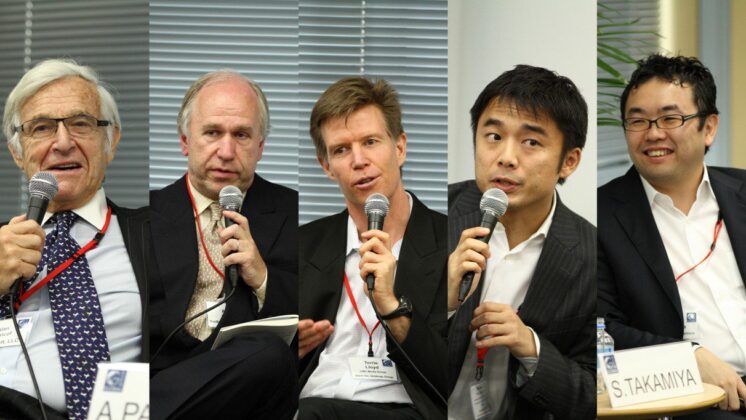Japan is at a turning point. Exciting new things are happening, but the challenge remains: young entrepreneurs are being stifled, not nurtured.
How can Japan become more entrepreneurial? If only it were as easy as veteran venture capitalist Alan Patricof said at the Entrepreneurship in Japan and Asia panel of the G1 Global Conference.
“You people in the room,” he said. “Give up your jobs. Take risks. And mobilize capital.”
Too simplistic? Maybe, but also dead on target. After all, what is entrepreneurship, if not the embrace of risk?
Of course, as Patricof added later, the risks must be smart ones. And society has to support the risk-taker.
This is not the case in Japan, where business failure often means social failure. “In the US, if you fail, you get up again,” said Patricof. “Failure should be a badge of honor, not a badge of shame.”
Entrepreneur Daisuke Iwase, co-founder of the online insurance company Lifenet, showed with the clarity of his remarks why he was voted one of the Young Global Leaders at the World Economic Forum’s Davos conference in 2010.
Iwase said there are two reasons why Japan remains enterprise-unfriendly: “The attitude of policymakers, and the attitude of the media to startups.”
“New entrepreneurs provide expertise that older ones lack,” he said. “They bring ‘intellectual capital’ for growing new ventures.” He criticized the ingrained hostility of conservative Japan toward startups (perhaps from the establishment’s point of view, it would be better to call them “upstarts”). By way of example, he brought up the 2007 prosecution – for “crimes he may not have committed” – of LiveDoor’s outspoken young president Takafumi Horie, among others.
“He was a role model,” said Iwase.

Iwase has little regard for the media. Japan has no mainstream business journalists – except for one reporter at the Nikkei, he said – who understand or support young entrepreneurs.
Indeed, business journalism in Japan is often described as merely cheerleading for the PR departments of major corporations. That may be unfair, but we see the media’s bias toward entrenched power when the misadventures of “rebels” such as Horie attract almost instant, frenzied coverage. Contrast this with the Olympus case – one of the biggest scandals in Japanese corporate history. After London’s Financial Times broke the story in mid-October, it was a full two weeks before any domestic media seriously looked at it. During this virtual news-blackout, the company’s mainly Japanese shareholders lost over half the value of their investments.
There may be hope behind the gloom. Allen Miner, CEO of Sunbridge Corporation, said that in terms of venture capital and the environment for startups, Japan might be reaching the stage of Silicon Valley, circa the early 1990s. “We’re at a point where very exciting things are happening that are not well understood,” he said.

Miner also described the phenomenon of “flyover,” or the tendency of global entrepreneurs to bypass Japan in favor of China. However, he added, for entrepreneurs already working in Japan, this is not a bad thing, as it leaves more of the market to them. Other panel members agreed the proliferation of Chinese IPOs from companies with no track record does not inspire confidence. “It’s one reason I won’t go to China now,” said Patricof. “Too many startups.”
The “flyover” phenomenon may be lucrative for a small group of entrepreneurs, but it’s not inviting to new capital. Patricof got to the heart of the problem when he described US companies outsourcing software development to regions as far flung as Novosibirsk (Siberia), Romania, and Estonia. “But you don’t hear ‘Japan,’” he said. “You never hear ‘Japan.’”
Iwase suggested Japan has to create an intellectual environment that welcomes the adventure of venture. Young people should feel motivated to move. Teachers and mentors must encourage a can-do spirit. “The educational aspect is lacking,” he said. “My two years at Harvard taught me that to start something is really cool.”



